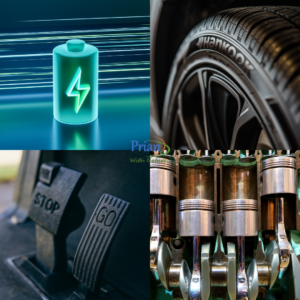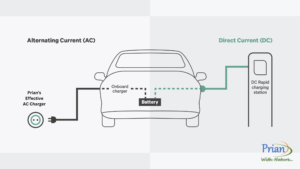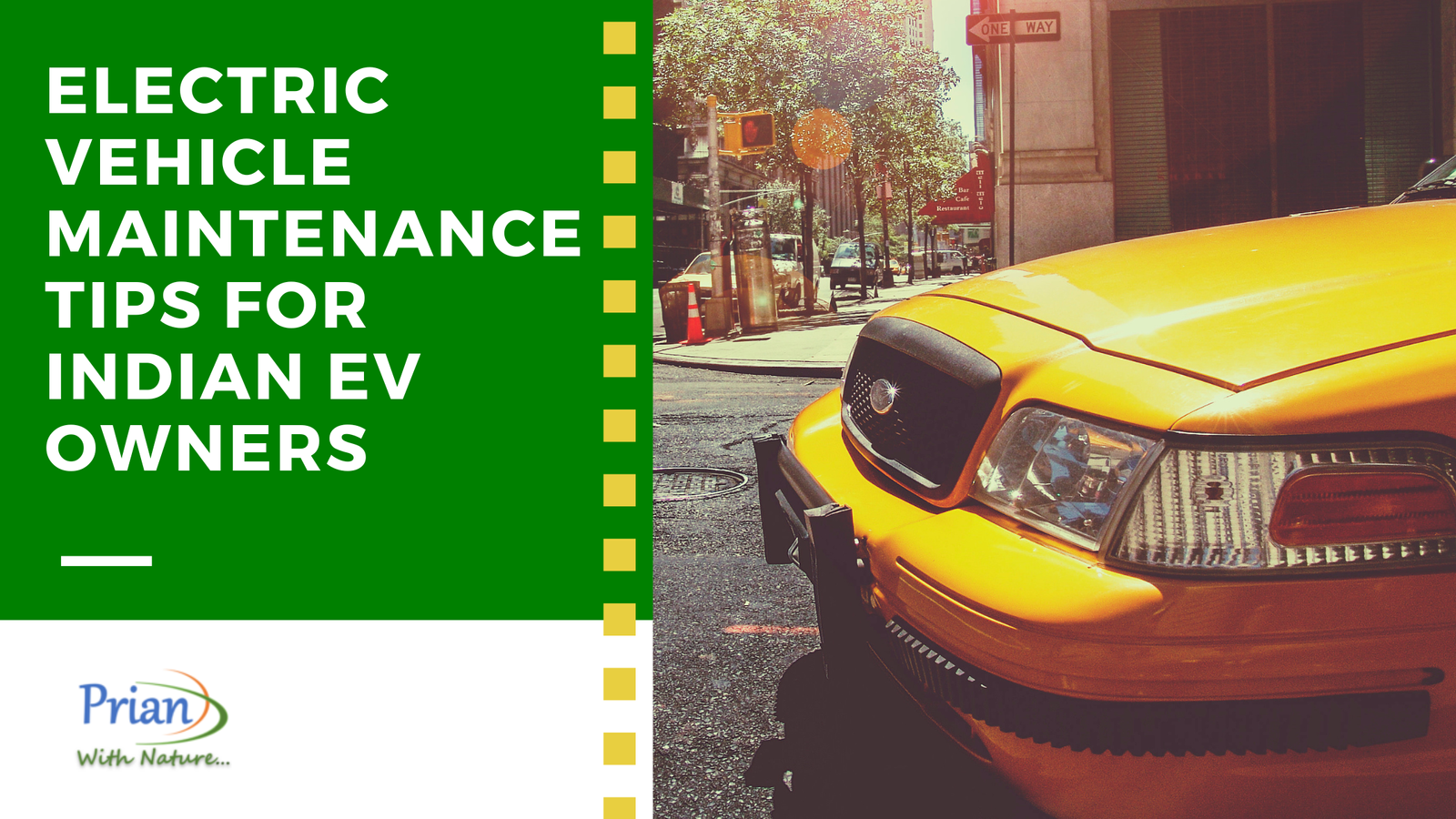So, you’ve got an electric vehicle, or maybe you’re considering getting one. Either way, you might wonder how to keep it in top shape, especially with India’s unique road conditions and climate.
Don’t worry; we’ve got you covered.!
In this blog, we’ll discuss some straightforward, practical tips to help you professionally in electric vehicle maintenance.
We’ll dive into everything from keeping your battery healthy to dealing with the quirks of driving an EV in India.
By the time you finish reading, you’ll have a solid game plan for making sure your EV stays reliable, efficient, and ready to go whenever you are!
Major Lookouts in EV Maintenace

- Battery Health and Charging:
Your EV’s battery is like its lifeblood, so keeping an eye on its health is crucial. Make it a habit to monitor the battery’s condition and keep it within the ideal temperature range. Stick to the manufacturer’s charging guidelines, and steer clear of extreme temperatures that might shorten your battery’s life. - Tire Maintenance and Rotation:
Keeping your tires in good shape is key for both safety and efficiency. Regularly check the tire pressure and rotate the tires to ensure they wear evenly. This not only boosts your EV’s performance but also helps your tires last longer. - Brake System Inspection:
Electric vehicles use regenerative braking, which helps reduce wear on traditional brake pads. However, it’s still important to check the brake system regularly to ensure everything’s working as it should for your safety. - Fluid Monitoring:
While EVs don’t have as many fluids as traditional cars, they still have some, like coolant and brake fluid, that need to be checked and possibly replaced. Regularly keeping an eye on these fluid levels will ensure your EV continues to run smoothly.
Now let’s explore all these electric vehicle maintenance nuances individually.
Get Optimal Battery Health
In any electric vehicle, the major component on which everything relies is your EV battery. The powerhouse of your electric vehicle.
So how do you make sure that your battery lasts the longest while performing efficiently?
Below are some professional tips for Indian EV owners, to get the best results from their EV battery.
Avoid Overcharging Your Battery
One of the key factors that can lead to your EV’s battery losing efficiency over time is overcharging. Unless you’re planning a long trip, there’s no need to charge your battery to 100%.
While it might seem logical to always have a full charge, regularly topping off your battery can cause it to degrade more quickly.
A better approach is to keep your battery level between 20% and 80% for optimal performance and longevity. You can do this by setting charging timers or monitoring your charging habits.
Of course, if you’re gearing up for a long journey, charge to the max. But for everyday use, it’s best to avoid letting the charge drop below 20% and stop charging when it hits 80%.
Protect Your Battery from Extreme Temperatures
Extreme temperatures, particularly high heat, can be tough on your EV’s battery. While cold weather can reduce your driving range, excessive heat can accelerate battery wear and tear. To help protect your battery, try to park your EV in the shade, especially during hot summer days.
Use Fast Chargers Only When Necessary
Although modern EVs come equipped with fast-charging capabilities, it’s best to reserve these for when you need them.
Frequent use of fast chargers can generate more heat, that can damage your battery over time.
If you have an AC charging station at home, that’s a slow, but safe charger. This charger lets the onboard AC to DC converter in your EV convert the electricity into DC. This lowers heating in batteries.
On the other hand, most public EV chargers you come across are DC chargers, that charge to 80% battery capacity within 30 minutes.

You can refer to our guide on fast vs slow EV charging, to know exactly how slow charging or AC charging is beneficial for your battery’s lifespan.
For everyday charging, stick to regular voltage chargers for optimal electric vehicle maintenance.
Tire Rotation Maintenance in Electric Vehicles
Tire maintenance is something many people overlook, but it’s key to keeping your vehicle running efficiently.
Tires will wear and tear with usage. Instead of stopping it from wearing down, we can control it to some degree.
Regularly rotating your tires ensures they wear evenly, which helps them last longer and improves your car’s handling. Surely check your vehicle’s manual for the recommended schedule and rotation pattern.
Electric vehicles, with their quick acceleration and instant torque, can put extra stress on the tires.
That’s why it’s especially important to monitor tire tread depth and rotate your tires as advised by the manufacturer to maintain a safe and comfortable ride.
By regularly rotating your tires, you’re not just improving your driving experience—you’re also reducing the risk of accidents. And in case something does go wrong, having insurance for your electric vehicle can help cover repair costs.
Braking System in Electric Vehicle Maintenance
Electric vehicles typically use regenerative braking, which captures energy when you slow down and sends it back to recharge the battery.
This can mean less wear and tear on your brake pads. But it’s still crucial to keep up with regular brake maintenance.
Make sure your brake fluid is topped off and check for any leaks.
Even though EVs might not wear out brakes as quickly, it’s a good idea to stick to the manufacturer’s guidelines for brake inspections to catch any issues before they become a problem.
Speaking of brake fluids, let’s move to our final EV maintenance checkpoint; fluid management in electric vehicles.
Fluid Management & Cooling
Fluid management in an EV is crucial for ensuring the optimal performance of key systems, such as cooling and braking. Regularly checking and maintaining fluid levels helps prevent overheating and ensures the longevity and safety of your vehicle.
Electric vehicles use cooling systems to keep vital parts, like the battery and motor, at the right temperature. Keeping an eye on these systems is key to making sure your EV runs smoothly and doesn’t overheat.
Make it a habit to check the coolant levels and follow the manufacturer’s schedule for cooling system maintenance.
If your EV has a liquid-cooled battery, it’s especially important to ensure the cooling system is in good shape to help extend your battery’s life.
Exceptional Considerations In Electric Vehicle Maintenance
While maintaining an electric vehicle shares some similarities with taking care of a conventional car, there are a few key differences to be aware of:
- Electric Motor Check: Unlike gas engines, EVs run on electric motors, which don’t need oil changes but should still be checked for unusual noises, vibrations, or any signs of trouble. If anything seems off, it’s important to get it looked at right away.
- Software Updates: EVs are packed with advanced software that manages everything from performance to safety features. Keeping your vehicle’s software up to date is crucial. Manufacturers usually provide updates that can enhance your EV’s performance and overall driving experience.
- High-Voltage System Precautions: EVs operate on high-voltage systems, which require careful handling during maintenance. Always follow safety guidelines, and if you’re unsure, it’s best to consult a certified EV technician for any work involving high-voltage components.
Final Take
Taking care of your electric vehicle doesn’t have to be complicated, but it’s important to stay on top of the key maintenance tasks that keep your EV running smoothly.
By focusing on essentials like battery health, tire rotation, brake system inspections, and fluid management, you can ensure your EV stays in peak condition, even on India’s challenging roads.
One practical step you can take is to invest in an AC charging station for your home. Revolutionizing EV startups like Prian Energy are at the forefront of easing the travel of EV owners in India.
AC charging is not only safer but also better for your battery’s long-term health. This allows you to charge your EV at a consistent, controlled rate.
So, if you haven’t already, consider getting an AC charging station to keep your EV ready to go whenever you are.


Leave a Reply